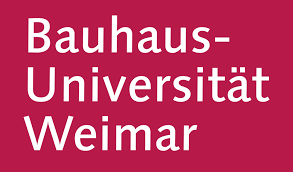Study Architecture in Germany: 16 Universities & 23 Courses Taught in English

Contents
Ever dreamt of designing innovative buildings, blending the old with the new, and leaving your mark on the world’s skylines? If you’re an international student, studying architecture in Germany might just be the perfect path for you. Germany is renowned not only for its cultural heritage and history but also for its advancements in architecture and engineering. With its exceptional educational programs, Germany offers a unique opportunity to shape the future of architecture.
Int. Study Programs
Universities
Cities
Why Study Architecture in Germany?
German universities are known for great education and modern teaching. Whether you study Sustainable Design or Digital Architecture, you’ll learn both theory and hands-on skills.
Germany has both classic and modern architecture. You will see famous sites like the Brandenburg Gate. You will also find cool buildings like the BMW headquarters.
Architecture degrees in Germany in English are valued around the world. Because German architects are trained with care and high standards, they are in demand globally. So, studying in Germany can help you start an exciting career anywhere.
Universities here attract students from all over the world, creating a diverse and multicultural atmosphere. This means you'll be studying with people from all backgrounds, learning from their experiences, and broadening your horizons. Lots of courses are offered in English and German, so even if your German isn’t great yet, you’ll still have plenty of options.
What about scholarships and tuition fees for international architecture students?
Good news — studying in Germany is more affordable than you might think. Public universities usually don’t charge tuition fees, even for international students. You’ll just pay around €150 to €300 per semester in admin costs. And there are lots of scholarships and financial help available too.
Scholarships for international students:
- DAAD Scholarships
- Deutschlandstipendium
- Erasmus+
- University-specific scholarships
There are many scholarships for international students — the DAAD Scholarship Guide is a great place to start!
Are There English-Taught Degree Programs in Architecture?
Worried about your German? Don’t be! Many universities in Germany offer Architecture programs in English. This allows students from around the world to study without needing to speak fluent German.
- Some universities offer dual language programs where courses are taught in both English and German. It's a great way to improve your German skills while studying in your field.
- Consider taking a preparatory language course. It helps you reach the required level for programs taught in German and make your transition smoother.
- A lot of German universities have partnerships with institutions around the world, offering exchange programs and joint degrees. They often include English-taught courses and give you the chance to study in different countries during your studies.
- Graduating from an English-taught program in Germany opens doors to global career opportunities. Employers worldwide recognize the quality of education provided by German universities.
Need help choosing the right English test? This English language test guide breaks it down for you.
| University | Degree | Language |
|---|---|
|
Technical University of Munich (TUM)
|
MSc | English
|
|
RWTH Aachen University
|
BSc, MSc | German and English
|
|
Technische Universität Berlin (TU Berlin)
|
BSc, MSc | German and English
|
Top Architecture Universities in Germany
Qualifications in Architecture in Germany
Bachelor's in Architecture
A bachelor’s in architecture is where your journey begins. If you want to study architecture in Germany for international students, this 3–4 year program is a great place to start. It gives you a strong mix of creative and technical skills. You’ll learn about:
- Architectural design: Learn how to create building plans and models.
- History of architecture: Explore different architectural styles and their evolution.
- Construction technology: Understand the technical side of building construction.
- Urban design: Design for urban spaces and communities.
- Sustainability: Principles of green architecture.
Most bachelor’s programs require a high school diploma or equivalent for admission, along with a portfolio showcasing your work.
Master's in Architecture
If you want to learn more and focus on a specific area, a master’s in Architecture is a great next step. These programs usually last two years and cover advanced topics. You can choose specializations like:
- Sustainable architecture: Techniques for green design and construction.
- Urban design: Planning and design of urban spaces.
- Digital architecture: The use of digital tools and technologies in design.
- Architectural history and theory: Study architectural movements and cultural contexts.
Most programs end with a thesis project, where you’ll tackle a complex design challenge or do some in-depth research.
Curious About the Best Master's Programs in Architecture? Find Out More Here.
.webp?width=1024&height=1024&name=studying-masters-architecture%20(1).webp)
German Dipl.-Ing. in Architecture
The Diplom-Ingenieur (Dipl.-Ing.) in Architecture used to be the main degree for architects in Germany. Today, most universities offer bachelor’s and master’s degrees, but some still have diploma programs. These usually take 10 semesters (about 5 years) and include subjects like:
- Design and creation: Creative and artistic aspects of construction.
- Construction: Technical and craft fundamentals of construction.
- Building technology: Utility engineering, energy efficiency, and sustainability.
- City planning and landscape architecture: Planning and design of urban and landscape spaces.
- Construction law and the construction industry: Legal and economic foundations of construction.
- History and theory of architecture: Historical and theoretical foundations.
The degree program concludes with the diploma thesis which is a comprehensive academic paper that includes an independent project or research paper.
Advanced Architecture Degree in Germany: Related Studies
Studying Architecture in Germany is just the beginning. You’ll also find many other programs that connect well with architecture or open new doors in your career. Take a look at some examples:
Landscape Architecture
Landscape Architecture is all about designing outdoor areas, landmarks, and structures to achieve environmental, social-behavioral, and aesthetic outcomes. Programs in Germany cover:
- Garden and park design: Creating beautiful, functional outdoor spaces.
- Environmental restoration: Restoring natural landscapes and public areas that blend culture and nature.
- Urban green spaces: Incorporating green spaces into modern cities for better living.
- Sustainable landscaping: Promoting biodiversity, often tied to Germany’s focus on environmental well-being.
Building materials: Study new and traditional materials used in mechanical and construction engineering.
Urban Planning
This field focuses on designing and organizing urban spaces, addressing the complex needs of growing cities. German universities offer top-notch Urban Planning programs that cover:
- Land use planning: Figuring out how to use spaces for residential, commercial, and industrial uses.
- Sustainable development: Making sure that urban design includes eco-friendly practices.
- Transportation systems: Designing public transport and infrastructure that's efficient.
- Community development: Creating spaces that encourage social interaction and community well-being.
Building Technology
Building Technology combines aspects of architectural design and engineering to develop advanced construction methods and materials. You'll learn about:
- Building materials: Building materials: Study new and traditional materials used in mechanical and construction engineering.
- Advanced building systems: Integrate state-of-the-art HVAC, electrical, and plumbing systems.
- Innovative construction techniques: Learn about modern methods such as prefabrication and modular construction.
- Building performance: Study how buildings perform in terms of energy use, durability, and occupant comfort.
FAQ
What are the language requirements to study Architecture in Germany?
If you plan to enroll in one of the German programs, you'll need to prove your language skills. Most universities require you to pass a German language test. The most common tests are:
- TestDaF (Test Deutsch als Fremdsprache
- DSH (Deutsche Sprachprüfung für den Hochschulzugang)
- Goethe-Zertifikat
If you go for an English-taught program, you'll need to prove your English proficiency. Commonly accepted tests include:
- IELTS (International English Language Testing System)
- TOEFL (Test of English as a Foreign Language)
- Cambridge English Qualifications
What are the visa requirements for students?
If you're from an EU/EEA country, you don't need a visa to study in Germany. All you need is a valid passport or ID card. However, if you’re from outside the EU/EEA, you’ll need a Student Visa. First, get accepted to a German university. With your acceptance letter, you can apply for a Student Visa at the German embassy or consulate in your home country. Schedule your visa appointment well in advance.
You'll need the following documents: a valid passport, acceptance letter, proof of financial resources (such as a blocked account with approximately €11,904 per year), proof of health insurance, a completed visa application form, passport photos, proof of language proficiency, academic records, a letter of motivation and proof of accommodation.
Can international Architecture students work in Germany post-graduation?
Architecture graduates can apply for an 18-month Job Search Visa. This visa allows you to stay in Germany and look for a job that matches your qualifications. During these 18 months, you can take any kind of job to support yourself while you look for a position in your field of study.
As soon as you get a job in your field, you can apply for an EU Blue Card or a Residence Permit for Employment. The EU Blue Card is particularly attractive because it's designed for highly skilled workers and offers several benefits, including the ability to apply for permanent residency after just 33 months (or 21 months if you have a B1 level of German). If you prefer, you can also apply directly for a residence permit for work purposes which is usually granted for the duration of your employment contract. Either way, you're well on your way to building a career in Germany.
This might also be of interest to you

Expatrio Scholarship 2025: Win up to €15,000 to Support Your Studies in Germany
Studying abroad opens doors, not just for your own future, but for the lives you'll touch along the way. If you're planning to study in Germany in...

Why More Indian Students Are Choosing Germany Over the USA
In the last decade, Germany has become one of the fastest-growing study destinations for Indian students. While the USA once dominated the dreams of...

Top Courses for Indian Students in Germany vs USA (2025 Guide)
Studying abroad is a dream for many Indian students, but choosing the right country and course can be confusing. The United States and Germany are...

Post-Study Work Visa: Germany vs USA for Indian Students
When you're choosing where to study abroad, it's not just about the university name or the country hype. For many Indian students, the big question...

Cost of Studying in Germany vs USA for Indian Students (2025 Prices)
Studying abroad is a dream for many Indian students, but the financial burden is often the biggest challenge. Between high university fees, living...

Germany vs USA: Which Is Better for Indian Students in 2025?
Choosing where to study abroad is a big deal, especially for Indian students. You're not just picking a country; you're deciding to move far from...

Germany Welcomes Displaced Harvard Students: A New Academic Home
In a move that’s left thousands of students in shock, the U.S. government has revoked Harvard University’s certification to enroll international...










